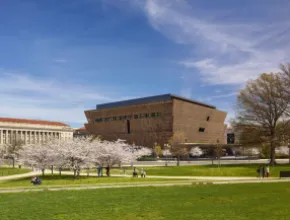From the Civil War to music and moonshine, Tennessee’s roots run deep. Whether groups are meeting in Memphis, Nashville, the Smoky Mountains region or anywhere in between, there are great ways for planners to incorporate the historical and cultural gems of the state into itineraries.
Memphis
Music and the Mississippi River are two defining aspects of Memphis’ rich history and heritage.
“Memphis has a vibrant history and unique attractions that cannot be found or manufactured in any other place in the world,” says Kevin Kane, president and CEO of the Memphis CVB. “Because music is a universal language, groups from all over the world identify with Memphis.”
Elvis Presley’s Graceland (www.elvis.com/graceland) is an inspiring place where groups will get a glimpse of the King’s personal life and the roots of rock ’n’ roll.
Kevin Kern, spokesperson for Elvis Presley Enterprises, explains that meeting planners can arrange evening events at Graceland’s ticket pavilion and inside the Elvis Presley Automobile Museum.
“From the ticket pavilion, attendees get a breathtaking view of the mansion and grounds lit up at night,” he says, adding that the museum is an excellent venue for cocktail mixers, where visitors can view Elvis’ car collection. “How many people can say they attended a conference event at the home of the King?”
With Memphis Riverboats (www.memphisriverboats.net), groups of up to 350 people can reserve private charter tours of the mighty Mississippi on a historic paddlewheel steamboat.
Nashville
Nashville has found a way to preserve and honor its history in a time when the city is also growing and changing.
“With so much rich history found here, it is important to remember the city’s past is part of what defines it today,” says Kay Witt, vice president of sales at the Nashville CVB.
Known as Music City, Nashville boasts the Ryman Auditorium (www.ryman.com), which was built in 1892 and was the world-famous stage for the Grand Ole Opry from 1943 to 1974. The auditorium still showcases music performances and is available for group events.
“The stage can be used for receptions or seated meal functions, and groups can tour backstage and see where folks like Minnie Pearl, Hank Williams and Patsy Cline spent time,” Witt says.
Meanwhile, the Country Music Hall of Fame and Museum (www.countrymusichalloffame.org) is a premier cultural institution and event venue. Dynamic, multimedia exhibits trace the history of country music, and event space includes an 11,000-sqaure-foot glass-roofed conservatory, a rotunda and theaters.
The 150-year-old Belle Meade Plantation (www.bellemeadeplantation.com), once owned by the Harding family, who ran it as a thoroughbred nursery for breeding race horses, is available for private events, wine tasting and culinary tours.
Chattanooga
Chattanooga has a number of stories to tell that highlight the area’s history and heritage, says Shelda Spencer Rees, director of tourism at the Chattanooga Area CVB, citing Civil War tales as some of the most intriguing.
Next year, Chattanooga will commemorate the 150th anniversary of the Civil War battles of 1863 that took place in Chattanooga and northwest Georgia.
“Our Civil War story is really a railroad story, and the Tennessee Valley Railroad Museum (www.tvrail.com) is a perfect venue for groups to take a ride on a steam train from the 1850s through a pre-Civil War tunnel,” Spencer Rees says.
Another Chattanooga Civil War experience is available via the Buttonwillow Church Civil War Dinner Theater (www.buttonwillowchurch.com) in Whitwell, just 30 minutes from downtown Chattanooga.
“Your group will enjoy a wonderful Southern meal in a quaint church setting and see a historical play,” Spencer Rees says, adding that lunch or dinner outings for up to 100 people can be arranged.
Just outside Chattanooga is one of Tennessee’s iconic draws: Rock City (www.seerockcity.com), which was the site of the Civil War’s Battle of Lookout Mountain. Rock City opened as an attraction in 1932 but has been around for millenia. It features massive ancient rock formations, gardens with more than 400 native plant species and panoramic views.
Smoky Mountains Region
Gatlinburg
Gatlinburg’s arts and crafts movement, and the making of moonshine, have long been associated with the Southern Appalachian Mountains, according to Jim Davis, spokesperson for the Gatlinburg Department of Tourism and Convention Center.
“Nowhere else in the South will you find a richer heritage of fine craftsmanship,” he says, citing the Great Smoky Arts & Crafts Community (www.gatlinburgcrafts.com), which dates to 1937 and is located on an eight-mile loop at the northeast edge of Gatlinburg. “This area offers the best in a wide range of craft shops, including pottery, wood carving, painting, candle making and quilting. Attendees at the convention center often make their way to the community for a leisurely shopping experience and treasure hunt.”
The production of moonshine, another strong tradition in the Smoky Mountains, is now legal, and Ole Smoky Moonshine Distillery (www.olesmokymoonshine.com) was the first in the state to get up and running when it opened in 2010, Davis says.
Groups are welcome for tours to learn about the history of making moonshine, enjoy free samples based on recipes passed down through generations and shop at the general store.
Pigeon Forge
The natural heritage of the Great Smoky Mountains and the cultural heritage of the people who settled here set the stage for visitors to Pigeon Forge today, according to Leon Downey, executive director of the Pigeon Forge Department of Tourism.
“Even when you are in a meeting in Pigeon Forge, the escalating ridges of Great Smoky Mountains National Park rise up beyond the city and set a mood,” he says. “Many meetings build in time for an excursion to Newfound Gap, where President Franklin Roosevelt dedicated the national park, or to Cades Cove to view an area that once was a substantial and virtually self-sustaining agricultural community.”
A motorcoach tour of Great Smoky Mountains National Park (www.nps.gov/grsm) produces lasting memories for attendees, Downey adds.
“People who don’t know the park are amazed to learn that it was created because of a grassroots movement to save the mountains when the timber industry was decimating the landscape in the early 1900s,” he says.
While the park is a perfect location for excursions, events in the city take on historic proportions at places such as the Titanic Museum Attraction (www.titanicattraction.com).
Sevierville
Downtown Sevierville, with historic buildings that include the Sevier County Courthouse, built in 1896, and the bronze statue of Sevierville’s own Dolly Parton located on the courthouse lawn, is a good place to start exploring the area’s history, according to Scott King, director of sales at the Sevierville CVB.
The third weekend of May each year brings the Bloomin’ Barbeque & Bluegrass (www.bloominbbq.com) festivities, during which visiting groups can celebrate the musical heritage of East Tennessee and sample some delicious barbecue.
Off-site venues that best represent Sevierville’s heritage, King says, include the Apple Barn Cider Mill and General Store (www.applebarncidermill.com) and the Tennessee Museum of Aviation (www.tnairmuseum.com), where groups can arrange to dine under the wings within the massive hangar.
Knoxville
From fine arts to forts, Knoxville offers myriad opportunities to explore the history and heritage of East Tennessee, says Kim Davis, spokesperson for the Knoxville Tourism & Sports Corporation.
The Tennessee Theatre (www.tennesseetheatre.com) and the Crescent Bend House & Gardens (www.crescentbend.com), both available for events, are two ideal choices.
The Tennessee Theatre, built in 1928 and listed on the National Register of Historic Places, is known as Knoxville’s “Grand Entertainment Palace” and has something for everyone, including classical and popular music, vintage films, and dance and theater performances.
Crescent Bend House & Gardens (www.crescentbend.com), built in 1834, was once a 900-acre working farm that today boasts a collection of 18th century American and English furniture, decorative arts and English silver, plus a three-acre formal garden overlooking the Tennessee River. Every April, more than 30,000 tulips are in bloom at Crescent Bend.
Tri-Cities
Bristol
In 1998, the U.S. Congress declared Bristol, which straddles Tennessee and Virginia, the “Birthplace of Country Music,” and today, according to Kimberly Leonard, marketing and sales director at the Bristol Tennessee/Virginia CVB, the area celebrates its musical heritage with live music events throughout the year, including the three-day Bristol Rhythm and Roots Reunion (www.bristolrhythm.com) music festival in September.
“In 1927, Ralph Peer with Victor Talking Machine Company came to Bristol to record ‘Mountain Music’ and in doing so created the first commercial recordings, the Bristol Sessions, which influenced the genre of country music,” she says, adding that musicians on the Bristol Sessions include the Carter Family and Jimmie Rodgers.
In addition to taking in a live music performance, visiting groups might also get a kick out of walking along downtown’s State Street in historic downtown Bristol, where the state line of Tennessee and Virginia runs down the middle.
“The self-guided historic downtown walking tour is a great way to discover the history and heritage of downtown Bristol,” Leonard says.
Also located downtown is the Bristol Train Station (www.bristoltrainstation.org), which was built in 1902 and offers meeting space for groups of up to 500 people.
Kingsport
From an antebellum home to a living history farm, Kingsport is peppered with various options for groups to experience the area’s history and heritage, says Barbara Kite, director of group tours at the Kingsport CVB.
Allandale Mansion (www.allandalemansion.com) is an antebellum home built in 1949 as a “farm house with a picket fence.” It is available for private events.
“Groups enjoy tours and murder mystery dinners in the living room of this remarkable home,” Kite says.
Exchange Place (www.exchangeplace.info), listed on the National Register of Historic Places, is an 1850s living history farm with 60-plus acres. The site was once a community that served as a self-supporting plantation, a relay station along the Old Stage Road and the post office for Eden’s Ridge, Tenn. (now part of Kingsport), according to Kite.
“Domestic skills, including spinning, weaving, quilting, candle-dipping and basketry, are frequently demonstrated during festivals and by special arrangements,” she says, adding that groups of up to 55 people can gather on the back porch of Roseland, a historic home at Exchange Place.
Johnson City
“Johnson City and our region is truly where the state of Tennessee began,” says Brenda Whitson, executive director at the Johnson City CVB. “Frontier pioneers such as Daniel Boone and John Sevier spent a great deal of time in this area, particularly at Rocky Mount.”
Rocky Mount, established in 1772 and home to Gov. William Blount from 1790 to 1792, is now Rocky Mount Living History Museum (www.rockymountmuseum.com).
“We have hosted groups who have utilized the museum meeting space, which can accommodate more than 200 people,” Whitson says. “We have put up a tent outside and had storytelling, bluegrass music and meal functions overlooking the beautiful Holston mountain range.”
Nearby Jonesborough, the oldest town in Tennessee, features 1700s architecture and is the home of the event-ready International Storytelling Center.
Whitson says the historic district features colorful shops filled with hand-crafted items, antiques, candies and toys.
“If the group can do one off-site event, it must be Jonesborough,” she says. “After a day filled with meetings at the hotel, attendees escape to a downtown block party where Main Street is blocked off. Local restaurants serve their finest cuisine, and we can provide entertainment with local musicians and storytellers.”
Freelancer Carolyn Blackburn likes Elvis even more since visiting Graceland.





